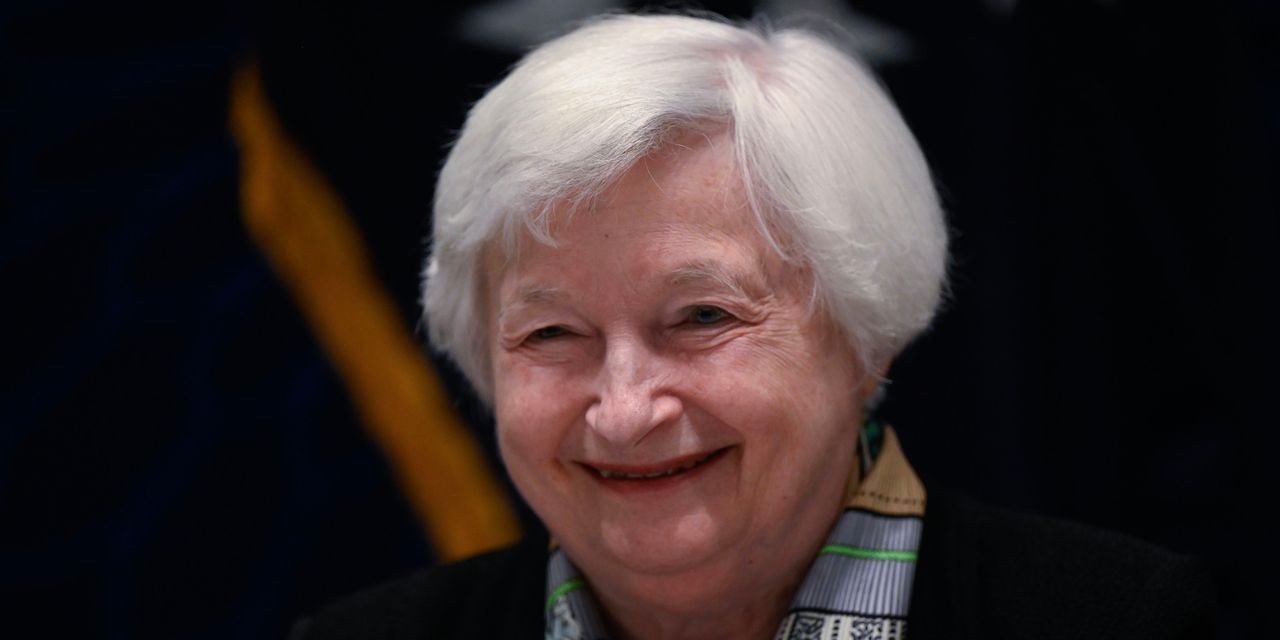Treasury Secretary Janet Yellen wrapped up her weekend trip to China on Sunday, telling reporters her discussions with counterparts there were “productive” and had put U.S.-China relations on “surer footing,” though differences remain.
Yellen said the U.S. is “not seeking to decouple” its economy from China’s, but wants greater transparency, fewer misunderstandings, and more open communication going forward.
She also agreed that Washington will listen to Chinese complaints about security-related curbs on U.S. technology exports and their “unintended consequences” on China’s technology and economy.
China’s leaders have said that some of the U.S.’s trade measures are aimed at hurting its fledgling tech industries. The Chinese have objected to the Biden administration limiting access to processor chips, computing products, and other U.S. technology, citing national security, moves that also threaten to hamper the Communist Party’s development of smartphones, artificial intelligence and other industries.
China has banned Chinese companies from buying products from American memory chip maker Micron Technology (ticker: MU). And three days before Yellen’s trip, China announced plans to restrict exports of gallium and germanium, two minerals that are critical to making semiconductors and solar panels.
China is the world’s largest source of both materials. “The U.S. and China have significant disagreements,” Yellen told reporters during a press conference at the U.S. embassy in Beijing. Washington is concerned about “unfair economic practices.”
A senior Treasury official who briefed reporters said the trip didn’t result in specific policy breakthroughs, as expected, but was successful in “re-establishing contact” and building relationships, the Associated Press reported.
Yellen said Chinese officials raised concerns about an expected Biden administration executive order restricting American investment in sensitive Chinese sectors, but she emphasized that any measures would be narrowly targeted.
China’s economy rebounded to 4.5% in the first quarter of 2023, from last year’s 3% after antivirus controls on travel and business activity were lifted in December, but China’s factory activity and consumer spending decelerated in the second quarter.
“As the world’s two largest economies, our nations collectively represent 40% of the global economy,” Yellen said. The world is big enough for both countries to thrive in a mutually-beneficial economic relationship that supports growth and innovation, and share in global prosperity.
Over 10 hours of meetings in two days, Yellen met with Premier Li Qiang, China’s No. 2 leader, and her Chinese counterpart, Vice Premier He Lifeng, as well as with other senior officials, Chinese women economists, and U.S. businesses operating in China.
“The decoupling of the world’s two largest economies would be disastrous for both countries and destabilizing for the world, and it would be virtually impossible to undertake,” she said. “We want a dynamic and healthy global economy that is open, free, and fair, not one that is fragmented, or forces countries to take sides.”
Yellen stressed the importance of ending Russia’s war against Ukraine, and urged Chinese firms to avoid helping Russia with materials or evading global sanctions.
She also discussed opportunities to “mobilize private financing for climate action” at a meeting with climate finance leaders in Beijing that the U.S. Treasury and People’s Bank of China co-chaired.
“No one visit will solve our challenges overnight, but I expect that this trip will help build a resilient and productive channel of communication with China’s new economic team,” she said.
John Kerry, President Joe Biden’s climate envoy, is scheduled to visit China next week to restart talks on global warming. China and the U.S. are the world’s largest emitters of climate-changing carbon.
Write to Janet H. Cho at [email protected]
Read the full article here





